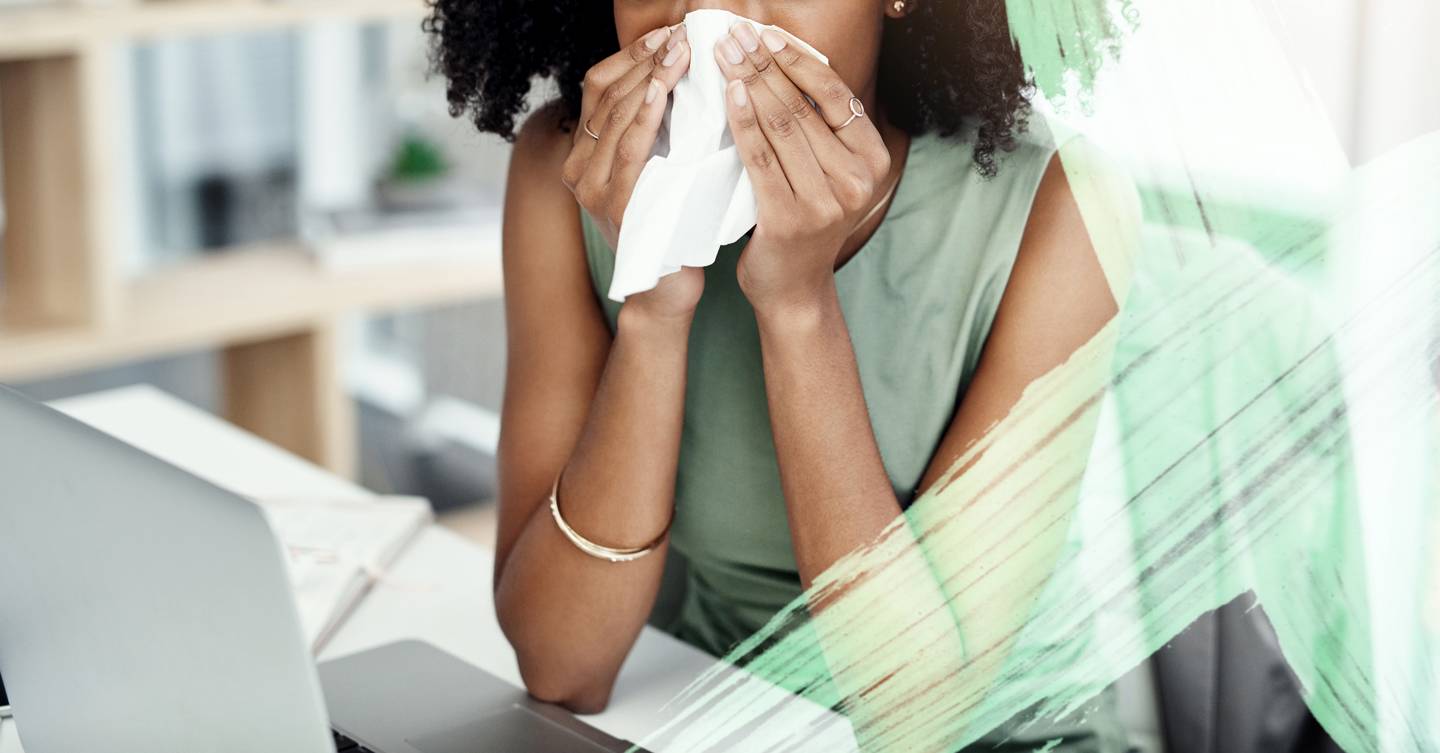As spring approaches, most of us are ready to stop and smell the flowers. Others, however, are getting ready to start popping antihistamines. If you fall into the latter group and your body starts freaking out with allergies once flowers start blooming, I have some news to break to you: Your trusty allergy med might be affecting your skin. If you’ve noticed that your dry skin is just as parched as it would be at the peak of winter or your oily skin has less of a slick to it, your antihistamine might be the reason.
In February 2018, a Redditor who goes by Fragrancefree101 posted a anecdotal PSA on the Skincare Addiction subreddit noting that antihistamines can affect sebum production. “I’ve recent[ly] started taking antihistamines daily to help with allergies (10 mg of generic prescription Zyrtec), and I noticed that it dried me the hell out, everywhere,” she explained, noting that, regardless of how much water she drinks, she feels like she needs to apply more body lotion than ever. She did, however, find a silver lining: “On the plus side, my generically hyper-oily hair and skin have also dried out a bit, so my makeup isn’t sliding off my face by 11 a.m.”
As someone who has taken some sort of allergy medication every day for years, I was intrigued reading about Fragrancefree101’s experience. Because, as she noted on Reddit, she’s not a doctor, I decided to call upon some experts for more information on this skin-care epiphany. Turns out, Fragrancefree101’s claims have some merit.
How antihistamines work:
Let’s start with what antihistamines do. “They are used to counteract the effects of histamine, a common chemical messenger in our body, by competing with it for binding sites in the body,” explains William Reisacher, director of allergy services at Weill Cornell Medicine and New York-Presbyterian. “While histamine performs many important functions, it can also lead to allergic symptoms like sneezing, itching, and runny nose.”
Histamines don’t just make your nose, throat, and eyes freak out all spring long, though. They can affect your skin, too. “There are histamine receptors on cells of the skin that stimulate them to release sebum, or oil, onto the skin,” says Reisacher. More specifically, sebocytes, which are the cells that produce sebum or skin oils, have a histamine H-1 receptor on their surface, says Lily Talakoub, a board-certified dermatologist at the McLean Dermatology and Skincare Center in Virginia. So when you take antihistamines, this receptor is blocked. As a result, the production of sebum is reduced, and skin can become less oily than usual.
Should you use allergy medicine to control excess oil?
Antihistamines aren’t necessarily what dermatologists would prescribe to their oily-skinned patients to combat breakouts. “I usually do not recommend taking an antihistamine for oily skin because the effects are minimal,” Talakoub says. “Sebocytes are stimulated to a much greater degree by hormones, such as estrogen and progesterone, which are in birth control pills, and cortisol (the stress hormone in the body).”
Reisacher wouldn’t prescribe them solely for helping treat oily skin either. Reason being? Long-term use of antihistamines can be problematic. “Because of their effects on the oil production for the skin, long-term use can lead to dry, itchy skin,” he says. “They can also produce dryness in the nose and throat region, causing post-nasal drip and nosebleeds.” Reisacher adds that the heart has histamine receptors, too, so long-term use of some antihistamines can lead to an arrhythmia, which is an irregular heartbeat.
One exception? If the patient happens to have allergies and oily skin, according to Kenneth Mark, a board-certified dermatologist in New York City. He says he might recommend antihistamines in this case. “This could be a way to accomplish two goals with one medication,” he adds. But don’t attempt this approach without talking to your own doctors first.
Other sebum solutions
If you really want to reduce sebum production, Ava Shamban, a board-certified dermatologist in Beverly Hills, says topical retinoids are the way to go.
Talakoub also suggests adding more products with salicylic acid in it to your skin-care routine. “Salicylic acid is a beta-hydroxy acid that travels down the skin pores and into the oil glands drying them up,” she explains. She recommends it over benzoyl peroxide and glycolic acid, which can inadvertently increase oil production “because the skin thinks it is too dry,” she says.
